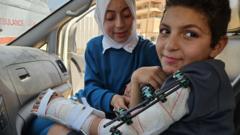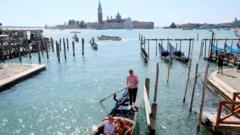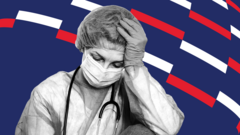Belcastro's mayor humorously ordered residents to avoid serious illness to draw attention to the local healthcare crisis, as the village struggles with limited medical services and a lack of nearby emergency care.
Italian Village Takes Extreme Measures to Highlight Healthcare Crisis

Italian Village Takes Extreme Measures to Highlight Healthcare Crisis
The small village of Belcastro has humorously decreed that residents must avoid becoming ill, exposing the serious healthcare shortcomings in Calabria.
In the picturesque yet challenging region of southern Italy, the village of Belcastro, home to approximately 1,200 residents, has taken an unusual step to address dire healthcare conditions. Mayor Antonio Torchia recently issued a decree humorously instructing residents to evade any serious illnesses that would necessitate emergency medical attention, in an attempt to highlight the severe inadequacies of the local medical system.
Situated in Calabria, one of Italy's economically challenged regions, Belcastro faces significant healthcare obstacles. Mayor Torchia explained that the decision was a form of "humorous provocation" aimed at attracting the necessary attention to an urgent crisis that has been previously communicated to regional authorities without sufficient response. With nearly half of the village's population over the age of 65 and the nearest Accident & Emergency (A&E) department located over 45 kilometers (28 miles) away, residents often find themselves at risk, relying on a roadway with a notably low speed limit of 30 kilometers per hour (18 mph).
Residents also contend with limited access to medical services, as the local doctor’s office is only sporadically available and provides no coverage during weekends, holidays, or after-hours. Mayor Torchia voiced concerns about the anxiety residents feel knowing that seeking timely assistance could be a race against time, given the poorly maintained roads that nearly present as a greater threat than the illnesses they might encounter.
The provocative decree extends beyond merely avoiding illness; it also warns residents against engaging in risky behaviors, advises limited travel, and even suggests that they refrain from sports, thereby promoting an even more sedentary lifestyle. The ambiguity surrounding the enforcement of these regulations raises questions, as the sparsely populated region of Calabria continues to battle against a deteriorating healthcare infrastructure.
Political mismanagement and mafia influence have significantly hindered the capabilities of the local healthcare system, which has remained under government supervision for nearly 15 years due to crippling debt and a glaring shortage of medical personnel and facilities. With the ongoing closure of approximately 18 hospitals since 2009, many residents are forced to seek medical care outside the region. Efforts to remedy the situation included a recent agreement with Cuba to send 497 doctors to assist in local healthcare needs over a three-year period.
Community members expressed support for Mayor Torchia’s radical approach, seeing it as a necessary measure to raise awareness of grave issues affecting their health and safety. One local resident remarked that the mayor’s provocative decree would "shake consciences" and serve as a wake-up call regarding the plight of the healthcare system in Calabria.





















